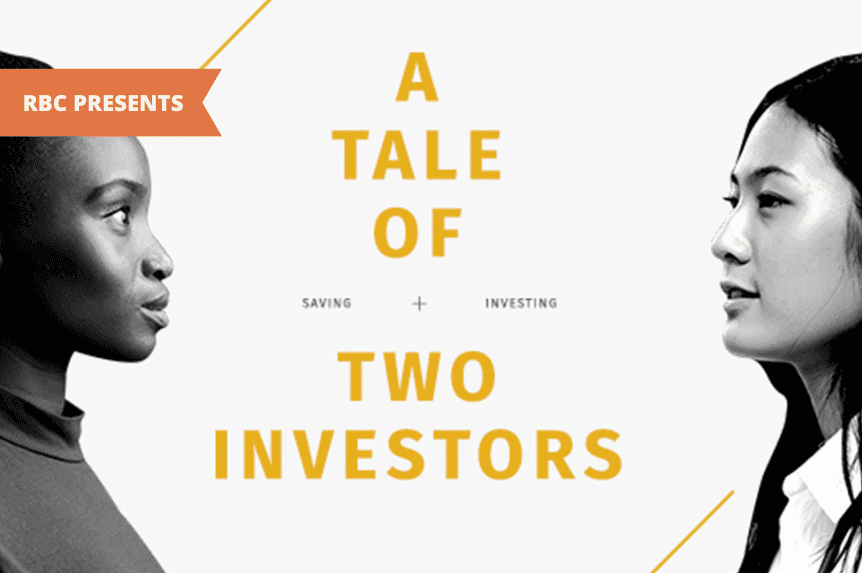A Tale of Two Investors: Why it Pays to Start Early

There are always going to be demands on your money. Today, it may be car payments and student loans. Tomorrow, it could be a mortgage, family expenses and vacation plans. While it may never feel like the right time to start investing and planning for retirement, there are benefits to starting as soon as you can.
Here are three reasons why it pays to start investing early.
1) You’re building investing habits from the start
Making room for investing can seem like a challenge – but even carving out a small piece of your income for your future can help you build fundamental habits throughout your income earning years.
And it’s easy to get into an investing routine, particularly if you get started with a Pre-Authorized Contribution (PAC) plan. A PAC plan automatically moves money from your chequing account to your investment account. All you do is choose how much and how you want to invest it. Even $50 per paycheque can make a difference in the long run and could help you reach your goals faster whether it’s for your child’s education or retirement. And the rest of the work is done for you – with a PAC plan, you end up saving without even thinking about it.
2) There’s room to grow
As you establish that investing habit, chances are your income will grow over time. That means you can gradually increase your PAC amount, allowing you to build up your investments faster.
3) You’ll benefit from compound earnings
You can think of compound earnings as “earnings on earnings.” It means you earn returns on your initial investments and then reinvest it so you can earn returns on the new total – the original amount invested + the invested earnings. This is all about your money making money without you having to do more work.
Here’s an example of how investing early – versus putting it off – can impact the amount of savings you have available at retirement:
Susan and Carol are both planning to retire at age 65. Susan invests $400 monthly starting at age 23 and stops contributing at the age 35. She invests $57,600 in total over 12 years, and leaves her money invested until she’s 65.
Starting at the age of 35, Carol also invests $400 monthly until she turns 65. In total, she invests $144,000 over 30 years.
With more time on her side to grow her savings and the benefit from compounding, Susan’s $57,600 investment grew to $513,529.50 at retirement, while Carol’s grew to $419,008.39. Even though Susan invested less at the beginning, she will retire with $89,000 more than Carol.*
It’s never too late to start investing but saving for the future is a long-term game so the sooner you start, the more time your money has to grow and benefit from the power of compound earnings.
Check out RBC’s investment calculators to see how the power of compound earnings can help you reach your financial goals.








